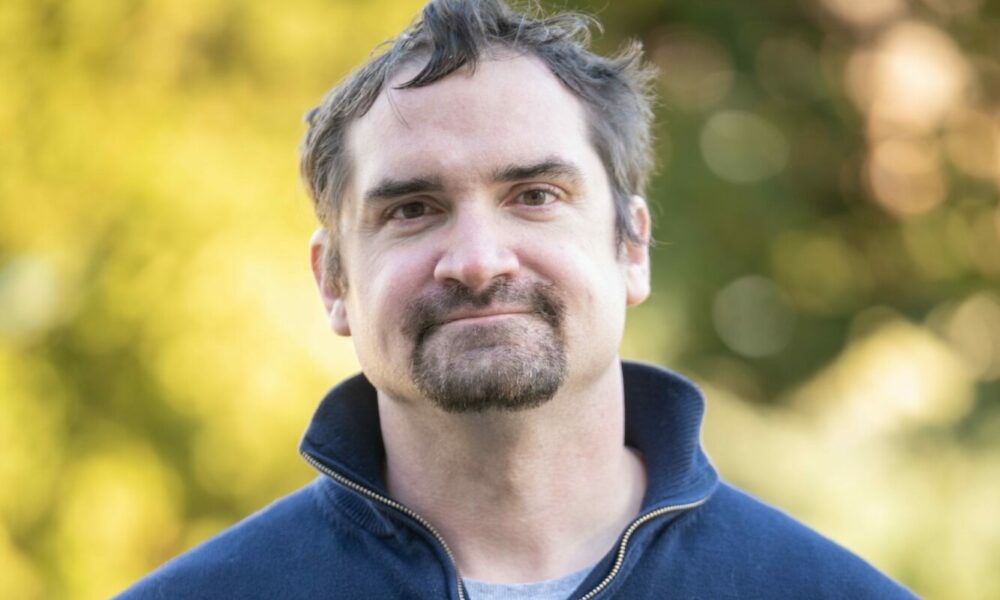

Today we’d like to introduce you to Steven Miller.
Hi Steven, can you start by introducing yourself? We’d love to learn more about how you got to where you are today.
My story started in 2014 when I was diagnosed with male factor infertility. At that point, I had no idea that infertility existed for men, so I was utterly shocked at the new reality I had found myself in. For my wife and I to have children, we needed to do In Vitro Fertilization, also known as IVF. This was a whole new world for me, as I knew very little about my reproductive health, let alone my wife’s. We later found out that my wife had fertility issues, as well, through more testing at the fertility clinic. I worked as a social worker helping teens and youth in Crisis Stabilization during that time. This program offers short-term case management for those struggling with mental health. I was very aware of my mental health when I was diagnosed with infertility, remembering the guilt I felt. I felt I was the one that was in the way of my wife’s dream of being a mother. I had searched for answers on what that normal experience was for men going through this, and much to my dismay, found very little information. There were articles about the possible causes of male infertility and possible supplements to boost sperm counts, but nothing on the psychological toll. Fast forward a couple of years of navigating the journey of building one’s family through IVF. We ended up in Missouri, outside of St. Louis. We had been to two fertility clinics in Wisconsin, one giving us a 15% chance of success doing IVF with them. The other, we had to leave because my wife’s insurance had changed before starting IVF. We could no longer afford to pay for IVF because the insurance my wife had through her employer had some fertility treatment benefits. This left us needing to re-evaluate our plans. We found out about this fertility clinic outside of St. Louis through my wife’s friend. We looked up how far it would be for us to drive, and it was exactly 5 hours from our house to the clinic. Both of us felt this was something that we could do.
We started treatments at the clinic and often traveled 5 hours for an appointment, ate lunch, filled up our vehicle with gas, and drove back home for another 5 hours. Some of the appointments we could do locally, but for the significant appointments, we needed to be in St. Louis. We did four rounds of egg banking before we attempted to fertilize them. Our first round was scheduled on my birthday in May 2017. I remember seeing my wife coming out of anesthesia and asking myself, is this worth it? I hated seeing her go through these procedures, knowing I was part of the reason we needed to do IVF. I often blamed myself for having to do IVF, even those we both had issues. As a man, I felt my issue had more weight and minimized my wife’s issue. Looking back, I can see that we both had issues, and no one’s issue had more weight. After we fertilized the retrieved eggs, we had 2 genetically perfect embryos. In January of 2018, we transferred one embryo that did not work. We were both devastated and grieving the loss. We did one more test in February and transferred two embryos in March 2018. This time both embryos stuck, and we were finally pregnant with twins. Our twins were born in November 2018 on two different days, with 6 hours between them.
While working as a social worker, my supervisor encouraged me to return to school for my Master’s in Social Work. It’s hard to move up in social work without it. After contemplating this decision to return to school, I finally applied for the part-time program at the University of Wisconsin=Madison. I have earned a Master’s Degree in Experimental Psychology through Nothern Michigan University and my Bachelor’s degree in Psychology. They are similar fields, but the focus I had learned was more on psychological research. It was June of 2020 when I found out I was accepted into the MSW program at the University of Wisconsin-Madison.
During my first semester, September 2020, I heard in one of my classes that people often come into this program knowing what they want to focus on, but sometimes this changes. It got me thinking about what else I could be doing and where could I make the most significant impact? Reflecting on my experience through IVF, I wondered if infertility counseling was a thing. So, I did what most people would do, search on Amazon to see if there were any books on this topic. Sure enough, there was. There was a textbook called Fertility Counseling by Sharon Covington, LCSW. I searched Sharon Covington and found her email. I thought it would be a long shot, but I emailed her asking if she had any advice about how to get into this field. She replied and provided some recommendations, such as joining the Mental Health Professional Group through the American Society of Reproductive Medicine. After a couple of months of contemplating, I decided to join in February 2021. During this semester, I took a class on Human Behavior and the Environment, where the textbook we used had a case study and page on infertility. I was very excited to finally be talking about this topic. However, it was not covered when it came to that part of the class where this topic would be covered. I started asking why.
As I talked to more people in social work, counseling, and psychology, I quickly realized that this topic was rarely discussed in classes. Using my degree to dig up research on infertility, I found research by Alice Domar, Ph.D., Zuttermeister, and Friedman from 1993 comparing psychological distress in women diagnosed with cancer, HIV, cardiac arrest, and infertility. Their research showed no significant differences between the psychological distress of receiving a cancer diagnosis and receiving a diagnosis of infertility. I read more research and learned about the psychological factors of being diagnosed with infertility. This led me to start writing things I wanted to do in this field, which is tacked to a wall in my office; knowing that I need to be a licensed social worker to work in Reproductive Mental Health, I had asked myself what can I do now to make an impact, while I work on my MSW degree. In my classes, professors often assign podcasts as assignments. I thought this would be a great way to spread awareness about this topic within the helping professions. I found some social works podcasts and started emailing them requesting an episode on this topic. Initially, I thought they wouldn’t respond or ask someone else to be the guest, but in October of 2021, I received an email from Greg Wright, the podcast host for the NASW Social Work Talks. After some back and forth, he agreed for me to be a guest to speak on this topic.
On December 7th, 2021, I finally had my chance to discuss the importance of infertility and mental health in our social work education. Yes, I was extremely nervous, but I kept telling myself that I was having a conversation with one person. I continue to have this mindset. Since that first episode, I have been on 3 other social work podcasts about this issue. Opportunities continued to happen. I spoke at Northern Michigan University, my alma mater, to graduate students in Psychology. I developed a three-part webinar series on male, female, and third-party/surrogacy perspectives on infertility and mental health. Doing anything I can to spread awareness and education about this topic. In the United States, 1 in 8 couples struggle with infertility, which is about 7.4 million people.
Regarding male factor infertility, this occurs about 30-40% of the time. I have already mentioned the psychological distress that comes from receiving that diagnosis. If we’re not talking about it in our classes, how are future clinicians supposed to know how to support these individuals if they seek help?
Brene Brown had said, and I’m paraphrasing here, “The only way to reduce stigma and shame is to normalize the experience, and we do this through conversation.” This has been my mantra from the beginning. We all know someone that has experienced infertility and miscarriage, but we are just not talking about it. Especially for men, there is minimal conversation going on. In May 2022, I decided that I wanted to start my own podcast highlighting the male experience of infertility, miscarriage, and family-building journeys. This came from my own experience and something I wish I had while going through it. I wanted to highlight various journeys that would help men realize they are not alone in this. Other men have experienced this, and their feelings are valid. So far, I’ve done 5 episodes and have 4 more guest interviews scheduled from August 16th-August 30th. Lastly, one of my favorite bands, Umphrey’s McGee, has a song called Nemo. The lyrics say, “Be demanding when no one is listening. You’ll always find an ear. Set in motion what your life’s missing. You’ll always find a need.”
Would you say it’s been a smooth road, and if not, what are some of the biggest challenges you’ve faced along the way?
It definitely has not been a smooth road. There were many times when I thought, am I even making an impact? Times I thought about giving up because I just wasn’t gaining any traction with connecting about podcasts. While trying to effect change, it’s easy to tell yourself it’s too much work. No one is listening; why do I continue? It’s easy to get discouraged, but change is really slow. Some days I feel I’m on cloud nine, but other days I struggle to see the end goal playing out. There are obstacles, but if you choose to look at the obstacles as learning opportunities, you will make your way either around them or through them. You learn to adapt, network, and read more research.
Thanks – so, what else should our readers know about your work and what you’re currently focused on?
Currently, I’m going to school for my MSW at UW-Madison with the plan to become a licensed clinical social worker, LCSW, specializing in Reproductive Mental Health. In the United States, there are about 5 men that specialize in this field, give or take. I have been a guest on podcasts about infertility and its impact on mental health. I also have my podcast, The MILES Podcast, which highlights the male experience of infertility, miscarriage, and family building. To my knowledge, there is no other podcast on this topic, specifically talking about the male experience and mental health. At my full-time job, people have come to know me for my work advocating for more education about infertility and mental health. I’ve had coworkers ask about it, spreading awareness of a rarely discussed topic. I’m very proud of how many people I’ve encountered that now have awareness about infertility and have been open to talking about it. That’s where we need to start and build off those conversations. Men rarely discuss this topic, leaving them isolated and perpetuating a narrative that infertility is a woman’s issue. We’ve all been told that in sex ed, you could have sex once and get pregnant. The problem with this is it instills this narrative that getting pregnant is easy, and when it doesn’t happen for people, they are left trying to make sense of it. It’s about creating awareness that this is not easy for everyone.
What do you like and dislike about the city?
I loved being in Marquette, Michigan, as it was like coming home. I was born in Marquette, and my family moved to Wisconsin when I was 2 years old. My grandparents, cousins, aunts, and uncles were from Marquette. Such a beautiful place and a different way of life. Northern Michigan University has some of the best professors, and you get a high-quality education. I still find myself using skills both in my undergraduate and graduate degrees in the work that I’m doing. Like they say at Northern, it’s a great day to be a Wildcat. I’m a big fan of NMU hockey.
One of the things that I liked the least was the amount of snow that Marquette gets every winter. It was my first year that we had 330 inches of snow. It snowed every day in January. I would wake up for an 8 am class and leave class walking into blizzard-like conditions. It probably wasn’t that bad, but my perception was that.
Contact Info:
- Website: https://miles-men-infertility-and.onpodium.com/
- Instagram: https://www.instagram.com/sjmiller2024/
- Twitter: www.twitter.com/miles_podcast
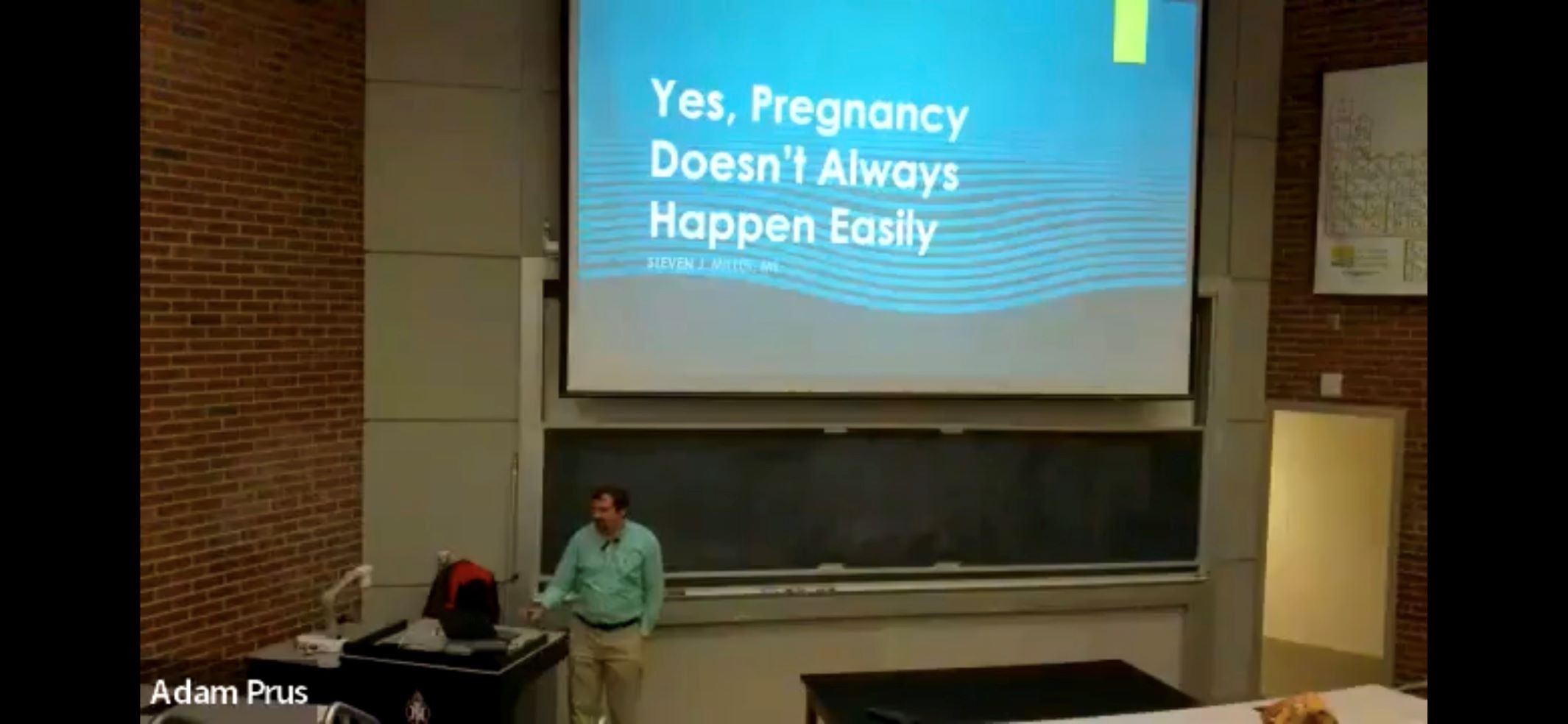
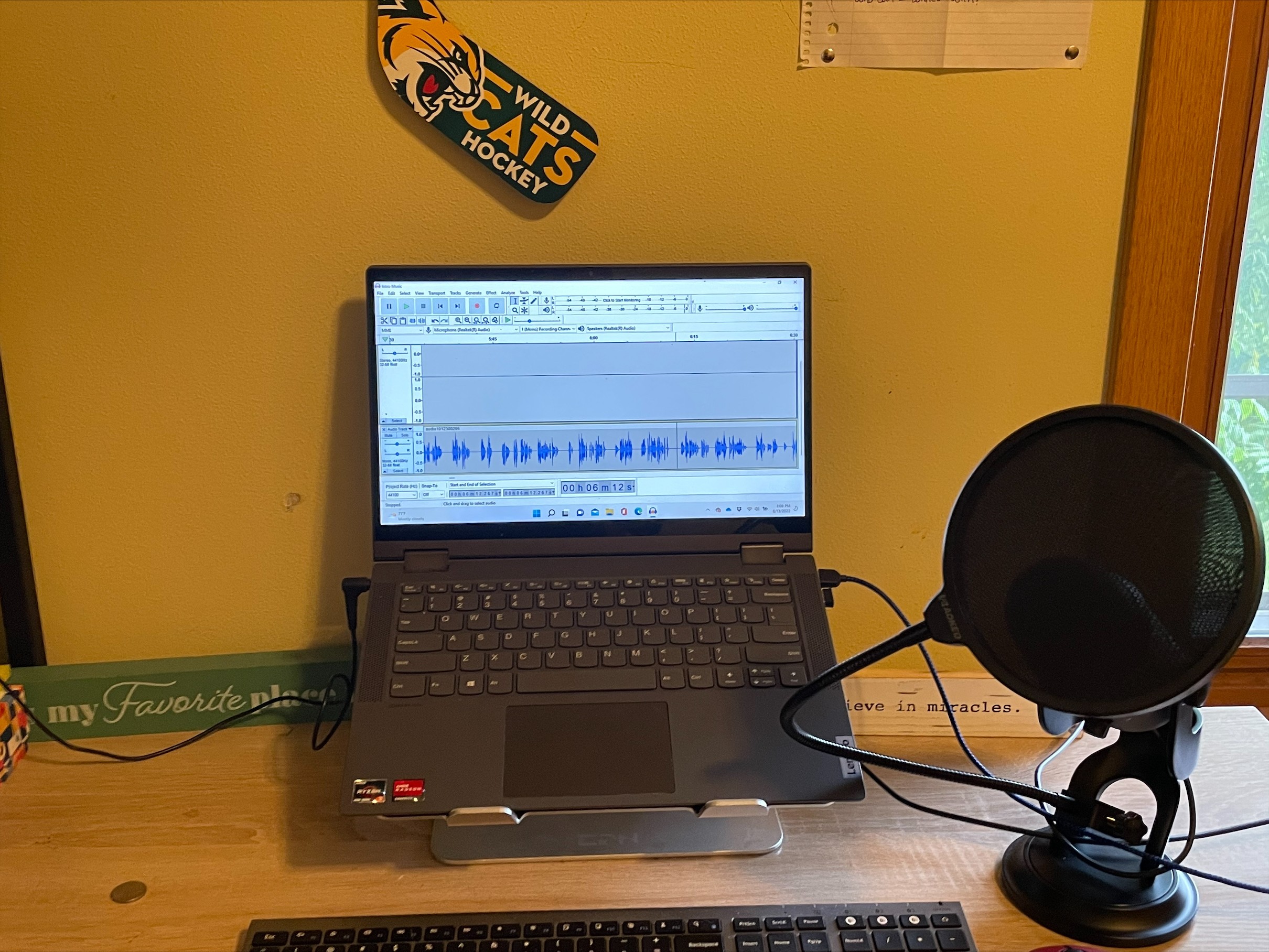
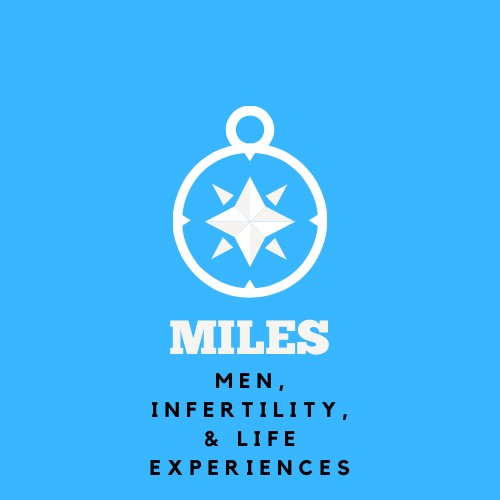
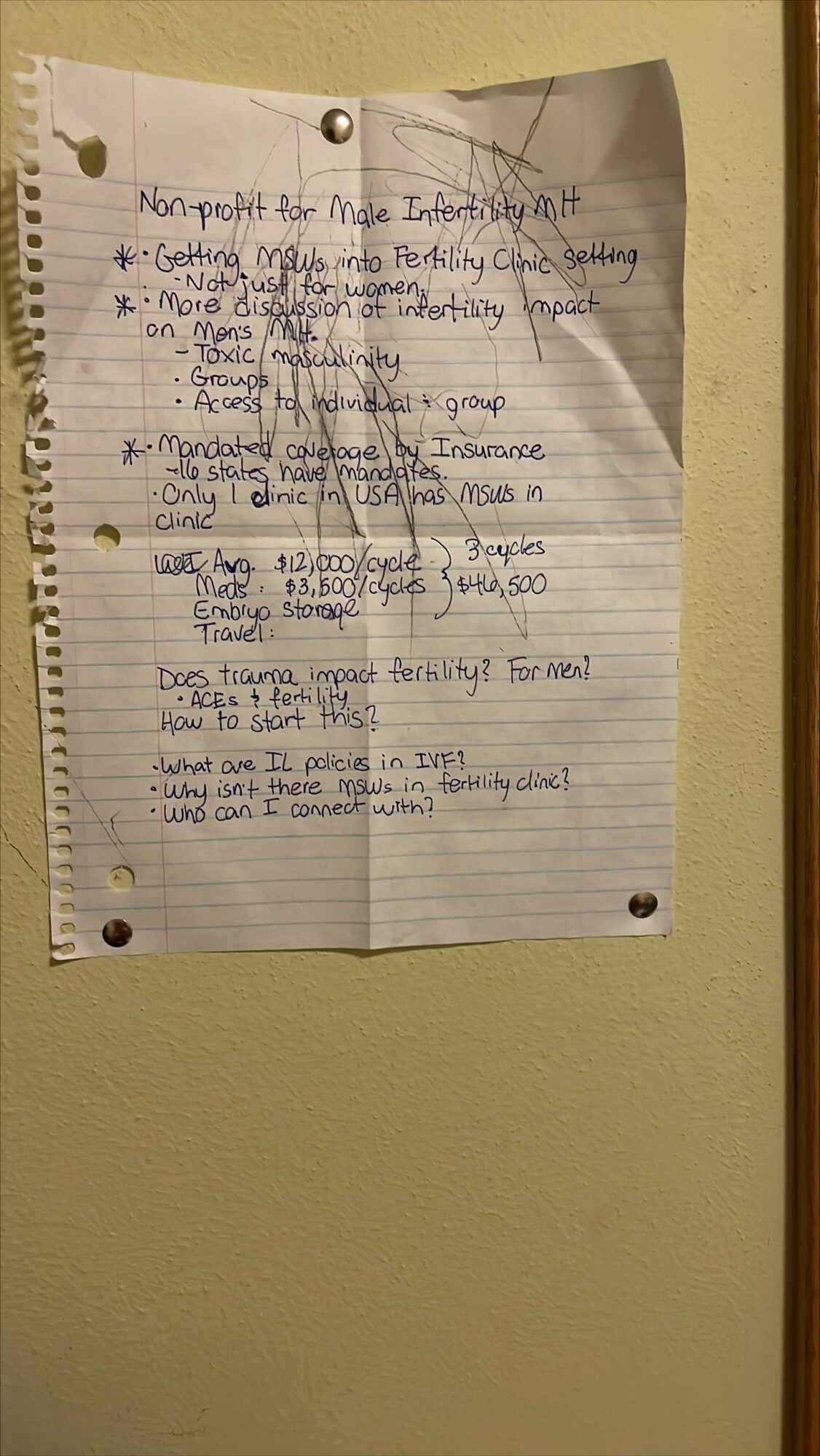
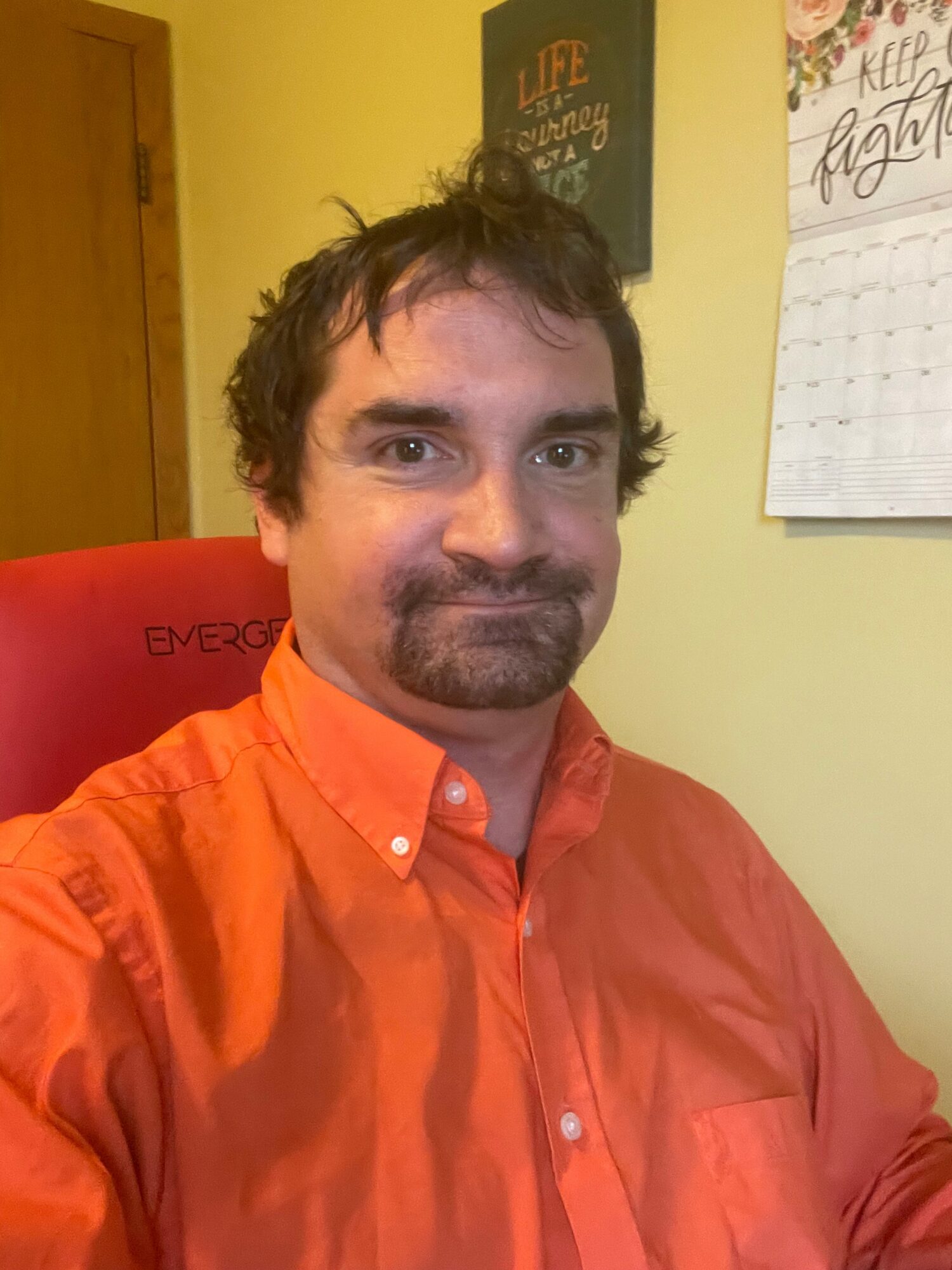
Image Credits
Featured Photo: Brett Perucco











